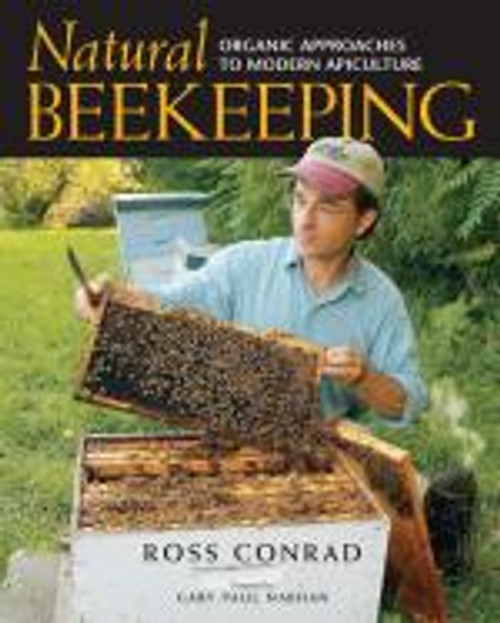In recent years beekeepers have had to face tremendous challenges, from pests such as varroa and tracheal mites and from the mysterious but even more devastating phenomenon known as Colony Collapse Disorder (CCD). Yet in backyards and on rooftops all over the world, bees are being raised successfully, even without antibiotics, miticides, or other chemical inputs.
More and more organically minded beekeepers are now using top-bar hives, in which the shape of the interior resembles a hollow log. Long-lasting and completely biodegradable, a top-bar hive made of untreated wood allows bees to build comb naturally rather than simply filling prefabricated foundation frames in a typical box hive with added supers.
Top-bar hives yield slightly less honey but produce more beeswax than a typical Langstroth box hive. Regular hive inspection and the removal of old combs helps to keep bees healthier and naturally disease-free.
Top-Bar Beekeeping provides complete information on hive management and other aspects of using these innovative hives. All home and hobbyist beekeepers who have the time and interest in keeping bees should consider the natural, low-stress methods outlined in this book. It will also appeal to home orchardists, gardeners, and permaculture practitioners who look to bees for pollination as well as honey or beeswax.







